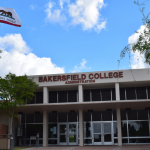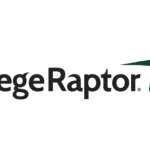Colleges and universities are increasingly using AI to engage students through modern communications (such as conversational SMS and chatbots) to extend the reach of overburdened staff. AI is an affordable technology that is disrupting the traditional modes of communication, driving tremendous ROI for the institutions embracing it.
In the coming years, we envision that many schools will be heavy users of AI for communications as the competition for students continues to rise and funding for higher education continues to fall.
Some institutions will utilize AI through a larger technology system such as their SIS or CRM; others will use a dedicated AI Communication Platform.
Some of the advantages of a dedicated AI Communication Platform over utilizing AI within a larger system are:
Preserving the Learning
By using a dedicated AI Platform, institutions have versatility and flexibility when it comes to the other technology and software they use. The promise of AI is that it “gets smarter over time.” Using a dedicated AI Platform ensures that if your institution changes SIS or CRM in the future, the existing AI can continue being leveraged with the new platform. If an institution used the AI within a larger enterprise system, and then changed solutions, it will lose the AI learning from the legacy platform.
System Agnostic for Extensive Integrations
A dedicated AI Platform is likely to be “System Agnostic”, which means that it can work well with any system through a combination of drop-in integrations, configurable pre-built integrations and an API framework. These integrations are critical to accessing data from multiple systems in order to provide students with a streamlined and personalized experience.
Learning from Big Data
A dedicated AI Communication Platform that is architected in a “multi-tenant” structure relies on a large single brain that supports all the institutions on the platform, while at the same time providing institution-specific answers for each “tenant” on the platform. The benefit of this approach is that the AI learns from a large data set of millions of interactions to better understand student intents when they engage with the AI. This creates a superior Day 1 experience for all new institutions that join the community.
Low Lift to Launch and Maintain
AI tools that come bundled with a CRM or SIS require considerable effort from the institution to build and maintain. Conversely, a dedicated AI Communication Platform requires very little effort to stand up and maintain over time. The Platform provides “AI as a Service” and comes with considerable content “out of the box.” Even more importantly, the Platform is training the AI behind the scenes, meaning the institution needs only to focus on its content, and does not need to carry the ongoing burden of training the AI.
Best of Breed
The final advantage of a dedicated AI Communication Platform over using AI within a CRM or SIS is that it has a greater likelihood of becoming “best of breed” over time. This is because of the laser-like focus the organization providing the AI Communication Platform has in ensuring it continually innovates the technology to be the best at what it does. An SIS or CRM that has add-on AI capabilities will be divided in its attention between the various components of its systems.
The Wrap
When it comes to higher education, there will be increased pressure for institutions to tap into AI in order to extend the reach of their staff and provide students with the modern communications experience they expect. Colleges and universities will need to assess how best to leverage these new technologies in their workflows and technology stack. We believe there is a compelling argument for using a dedicated AI Communication Platform. Doing so ensures that the learnings from the AI are not lost if the institution changes large enterprise systems such as the SIS or CRM. And because AI gets smarter over time, it is best to have the learning within a platform that is flexible and integrates well with other technologies. Ultimately, we believe that it is the approach that is most likely to be the “best of breed” in the years ahead.















